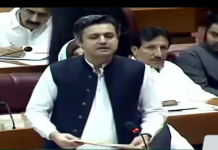The Sindh High Court (SHC) on Wednesday granted 14 days to the federal government to implement the Transgender Persons (protection of rights) Act 2018. A petition filed in the court pleaded the bench that the court had ordered the government to devise rules and guidelines for implementation of the transgender persons’ rights law. But the law is yet to come into force. The deputy attorney general told the SHC that the rules for the law have been hammered out and they will be approved soon by the federal cabinet. The government will also set up protection centre for transgender persons, the DAG further said. “Devising rules for the law does not require so much time, which you have you have spent,” the bench remarked. “The matter is facing delay due to the Covid-19 pandemic,” the federal government’s law officer said. “The rules for the law have been devised with the help of transgender community and 14 organisations were consulted over the matter,” the law officer further said. The SHC granted 14 days to the federal government to implement the rules of Transgender Persons (protection of rights) Act 2018. The court in an earlier proceeding over the matter last year had directed the Ministry of Human Rights to notify rules and relevant guidelines within 60 days and implement the law in letter and spirit.
متعلقہ مضامین
-
Bilawal takes U-turn on ‘taking names’ in rallies
-
Greater unity vital to liberate Kashmir: AJK president
-
PMC directed to halt medical colleges entry test on Nov 15
-
Pakistan records highest single-day Covid-19 deaths in four months
-
Pakistan starts receiving first winter snow, rain
-
Gilgit Baltistan Election 2020: Citizens in long queues outside polling stations
-
Unnatural alliance and Gilgit-Baltistan elections
-
Afridi warns world against jingoistic designs of India
-
NAB committed to bring corrupt elements to justice: chairman
-
Sehat Sahulat Programme: a true social health protection project
-
PTI on top with 10 seats in GB polls; set to form government
-
ACE books five irrigation officers over ‘corruption’














